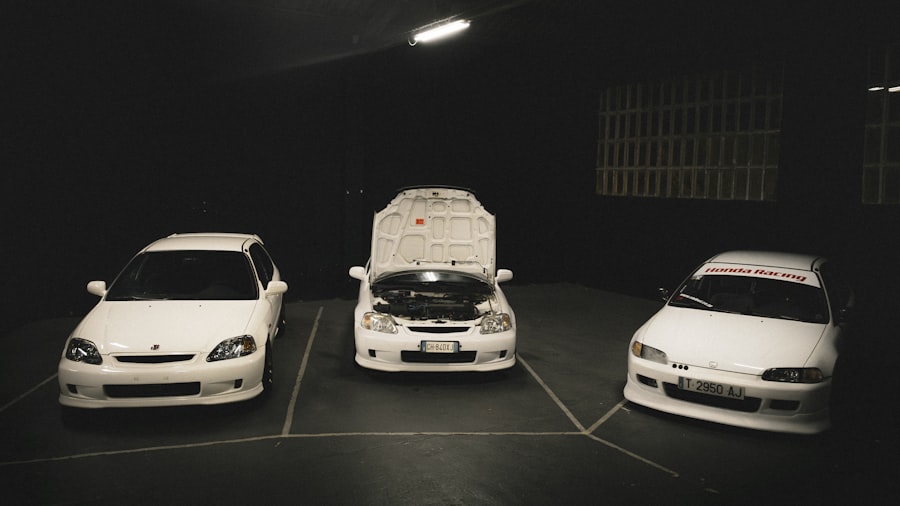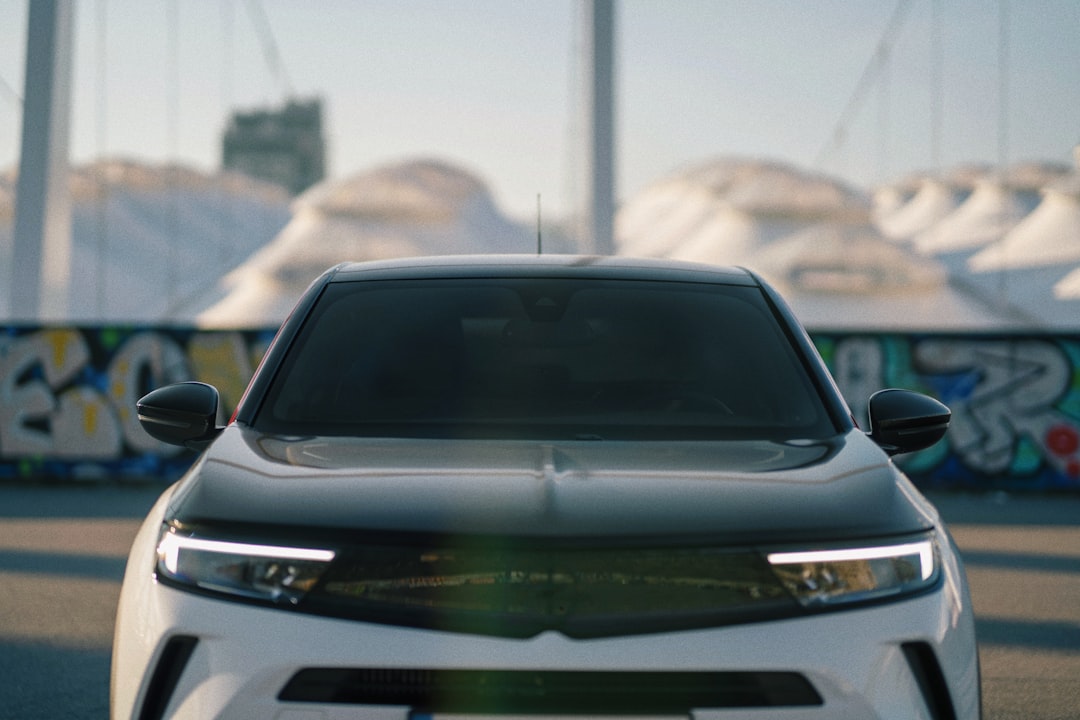The new car market has undergone significant transformations in recent years, driven by a confluence of technological advancements, shifting consumer preferences, and evolving economic conditions. As of 2023, the global automotive industry is witnessing a resurgence in demand, with manufacturers striving to meet the needs of an increasingly discerning customer base. The landscape is characterized by a diverse array of vehicles, from electric and hybrid models to traditional combustion engines, each vying for attention in a competitive marketplace.
This dynamic environment presents both challenges and opportunities for automakers as they navigate the complexities of consumer behavior and regulatory frameworks. In this context, understanding the new car market requires a multifaceted approach that considers various factors influencing consumer choices and industry trends. The interplay between innovation, sustainability, and economic factors shapes the decisions of both manufacturers and buyers.
As consumers become more informed and environmentally conscious, their expectations evolve, prompting automakers to adapt their strategies accordingly. This article delves into the driving forces behind the surging demand for new cars, the impact of technology on sales, and the challenges and opportunities that lie ahead for the automotive industry.
Key Takeaways
- Rising consumer demand and technological advancements are key drivers in the new car market growth.
- Electric and hybrid vehicles are increasingly preferred due to sustainability concerns.
- Automakers face challenges like supply chain disruptions but also opportunities in innovation.
- Regional differences significantly influence new car sales patterns and consumer preferences.
- The future market outlook emphasizes eco-friendly technologies and evolving consumer trends.
Factors Driving Surging Demand
Several key factors are propelling the demand for new cars in today’s market. One of the most significant drivers is the post-pandemic recovery, which has led to increased consumer confidence and spending power. As economies rebound, individuals are more willing to invest in major purchases such as vehicles.
Additionally, low-interest rates have made financing options more accessible, encouraging consumers to consider new car purchases rather than used ones. The combination of these economic conditions has created a favorable environment for automakers to introduce new models and attract buyers. Another critical factor is the growing emphasis on sustainability and environmental responsibility.
Consumers are increasingly aware of their carbon footprints and are seeking vehicles that align with their values. This shift has led to a surge in demand for electric vehicles (EVs) and hybrids, as buyers look for alternatives to traditional gasoline-powered cars. Automakers are responding by expanding their electric offerings and investing in research and development to enhance battery technology and charging infrastructure.
The push for greener transportation solutions is not only reshaping consumer preferences but also influencing regulatory policies that promote cleaner vehicles.
Impact of Technology on New Car Sales

Technology plays a pivotal role in shaping the new car market, influencing everything from vehicle design to sales processes. Advanced driver-assistance systems (ADAS), infotainment features, and connectivity options have become essential selling points for modern vehicles. Consumers are increasingly drawn to cars equipped with cutting-edge technology that enhances safety, convenience, and overall driving experience.
For instance, features such as adaptive cruise control, lane-keeping assist, and automated parking have become standard expectations rather than luxury add-ons. Moreover, the rise of online car buying platforms has transformed the sales process itself. Consumers now have the ability to research, compare, and purchase vehicles from the comfort of their homes.
This shift has been accelerated by the COVID-19 pandemic, which prompted many dealerships to adopt digital sales strategies. Virtual showrooms, online financing options, and home delivery services have become commonplace, allowing consumers to navigate the car-buying journey with greater ease and flexibility. As technology continues to evolve, it will undoubtedly play an even more significant role in shaping consumer expectations and driving sales in the new car market.
Consumer Preferences and Trends in the New Car Market
| Metric | 2022 | 2023 | Trend | Notes |
|---|---|---|---|---|
| Electric Vehicle (EV) Market Share | 8% | 12% | Increasing | Growing consumer interest in sustainability and lower operating costs |
| Average New Car Price | 45,000 | 47,500 | Rising | Due to advanced technology and supply chain constraints |
| Preference for SUVs and Crossovers | 55% | 60% | Increasing | Consumers favor larger vehicles for space and versatility |
| Interest in Autonomous Driving Features | 30% | 40% | Increasing | More buyers seek advanced safety and convenience technologies |
| Hybrid Vehicle Purchase Intent | 20% | 18% | Decreasing | Shift towards fully electric vehicles over hybrids |
| Online Car Buying Preference | 25% | 35% | Increasing | More consumers prefer digital purchasing experiences |
| Top Consumer Priority: Fuel Efficiency | 45% | 50% | Increasing | Reflects rising fuel costs and environmental concerns |
Understanding consumer preferences is crucial for automakers aiming to capture market share in an increasingly competitive landscape. Recent trends indicate a marked shift towards SUVs and crossovers, which have gained immense popularity due to their versatility and perceived safety benefits. These vehicles offer a higher driving position, ample cargo space, and family-friendly features that resonate with a broad demographic.
As a result, many manufacturers are reallocating resources to develop new SUV models while phasing out sedans that no longer meet consumer demand. In addition to vehicle type preferences, consumers are also prioritizing fuel efficiency and eco-friendliness in their purchasing decisions. The rise of electric vehicles has been particularly notable among younger buyers who are more inclined to embrace sustainable transportation options.
Automakers are responding by expanding their electric lineups and investing in marketing campaigns that highlight the environmental benefits of EVs. Furthermore, consumers are increasingly interested in vehicle connectivity features that integrate seamlessly with their digital lives. Infotainment systems that support smartphone integration, voice commands, and advanced navigation capabilities are becoming essential components of modern vehicles.
Challenges and Opportunities for Automakers
While the new car market presents numerous opportunities for growth, it is not without its challenges. One significant hurdle facing automakers is the ongoing semiconductor shortage that has disrupted production schedules worldwide. This shortage has led to delays in vehicle deliveries and increased prices for consumers, creating frustration among buyers eager to acquire new cars.
Automakers must navigate these supply chain issues while maintaining quality standards and meeting consumer expectations. Additionally, regulatory pressures related to emissions standards and safety requirements pose challenges for manufacturers striving to innovate while remaining compliant. As governments around the world implement stricter regulations aimed at reducing carbon emissions, automakers must invest heavily in research and development to create cleaner technologies.
However, these challenges also present opportunities for companies willing to adapt. By embracing sustainable practices and investing in electric vehicle technology, automakers can position themselves as leaders in an evolving market that increasingly values environmental responsibility.
Regional Variations in New Car Sales

The dynamics of the new car market can vary significantly across different regions due to cultural preferences, economic conditions, and regulatory environments. In North America, for instance, there is a strong preference for larger vehicles such as trucks and SUVs, driven by lifestyle choices and geographic considerations. The robust pickup truck market reflects this trend, with models like the Ford F-150 consistently ranking among the best-selling vehicles in the region.
Conversely, European markets tend to favor smaller cars due to higher fuel prices and urbanization trends that prioritize compactness and efficiency. The popularity of hatchbacks and subcompact cars in cities like Paris or Berlin illustrates this preference for practicality over size. Additionally, government incentives for electric vehicles vary widely across regions; countries like Norway have implemented aggressive policies promoting EV adoption through tax breaks and charging infrastructure investments, resulting in some of the highest electric vehicle penetration rates globally.
Sustainability and Environmental Concerns in the New Car Market
Sustainability has emerged as a central theme in the new car market as consumers become increasingly aware of environmental issues such as climate change and air pollution. Automakers are responding by prioritizing eco-friendly practices throughout their operations—from sourcing materials responsibly to implementing energy-efficient manufacturing processes. The shift towards electric vehicles is a direct response to these concerns; EVs produce zero tailpipe emissions and are often seen as a viable solution to reducing greenhouse gas emissions from transportation.
Moreover, many manufacturers are exploring alternative materials for vehicle production that minimize environmental impact. For example, some companies are experimenting with bio-based plastics derived from renewable resources or recycled materials that reduce waste in landfills. The push for sustainability extends beyond just vehicle design; automakers are also focusing on creating circular economies by developing recycling programs for end-of-life vehicles.
This holistic approach not only addresses environmental concerns but also resonates with consumers who prioritize sustainability in their purchasing decisions.
Future Outlook for the New Car Market
Looking ahead, the future of the new car market appears poised for continued evolution driven by technological advancements and changing consumer expectations. The transition towards electric mobility is expected to accelerate as battery technology improves and charging infrastructure expands globally. Analysts predict that by 2030, electric vehicles could account for a significant portion of new car sales as more consumers embrace sustainable transportation options.
Additionally, advancements in autonomous driving technology may reshape how consumers interact with vehicles altogether. As self-driving capabilities become more sophisticated, they could alter ownership models—potentially leading to increased interest in shared mobility solutions rather than traditional car ownership. This shift could create new business opportunities for automakers as they explore partnerships with tech companies focused on developing autonomous systems.
In summary, while challenges remain within the new car market—such as supply chain disruptions and regulatory pressures—the opportunities presented by technological innovation and shifting consumer preferences are substantial. Automakers that can adapt to these changes while prioritizing sustainability will likely thrive in this dynamic landscape as they cater to an increasingly informed and environmentally conscious customer base.




